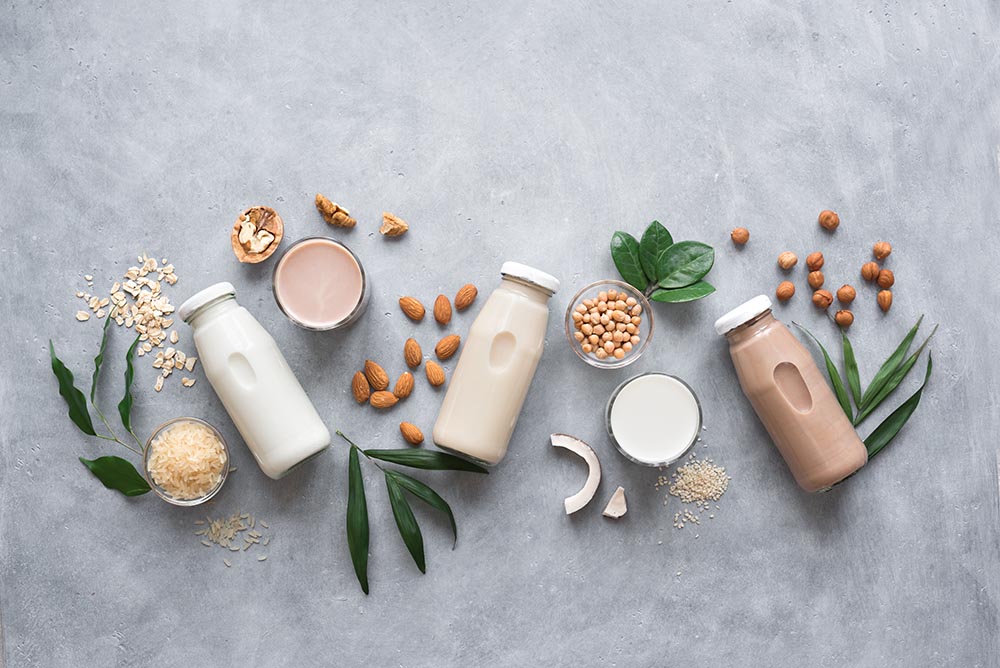
What Is Dairy-Free?

"Dairy-free" refers to products that contain no dairy at all. It’s a broad term—everything from meat to tofu to almond milk is dairy-free. For vegans and people with dairy allergies, though, it often refers specifically to dairy-free milk substitutes.
There is a lot of ambiguity surrounding the term. It’s often confused with lactose-free and non-dairy. All three of these are quite different. Lactose-free products have their lactose content removed. And non-dairy products may contain certain milk proteins like casein, whey, and other derivatives.
What is dairy-free, then? How does it vary from lactose-free and non-dairy?
What Is Dairy-Free?
Dairy-free products are completely free of milk and its derivatives. This makes them ideal for people with dairy allergies and those with lactose intolerance.
There is no set definition for the term, though. The FDA has yet to establish dairy-free regulations for manufacturers to follow. This means that even if a product is labeled "dairy-free," there's no guarantee that it's actually 100 percent free of dairy. To be completely sure, it's best to check the ingredients for any dairy-related substances.
Tips for Going Dairy Free
For people with lactose intolerance and dairy allergies, a dairy-free diet is very important. Luckily for them, going dairy-free is much easier than going gluten-free or vegan. Look for products with a dairy-free label. As mentioned, there is no set standard, so you’ll want to check the ingredients for any dairy substances. Be sure to steer clear of the following:
- Butter
- Yogurt
- Cream
- Milk
- Ice Cream
- Cheese and Cream Cheese
- Whey
Milk products are also found in bread, chocolate, pizza, cookies, sauces, and cakes, so you’ll need to be careful around these food items. You can find great plant-based dairy substitutes, though. Soy milk, dairy-free cake, and walnut cheese, to name a few, can make excellent choices.
What Are the Drawbacks of Going Dairy-free?
Apart from missing out on your favorite pizza, a key drawback of going dairy-free is losing out on rich sources of calcium, magnesium, and vitamin B. You’ll need to get these nutrients from other sources such as canned fish, leafy vegetables, pulses, or tofu.
If you’re lactose intolerant or have dairy allergies, a dairy-free diet can improve your quality of life. And lots of great dairy-free substitutes mean that you won’t even feel like you’re giving something up.
